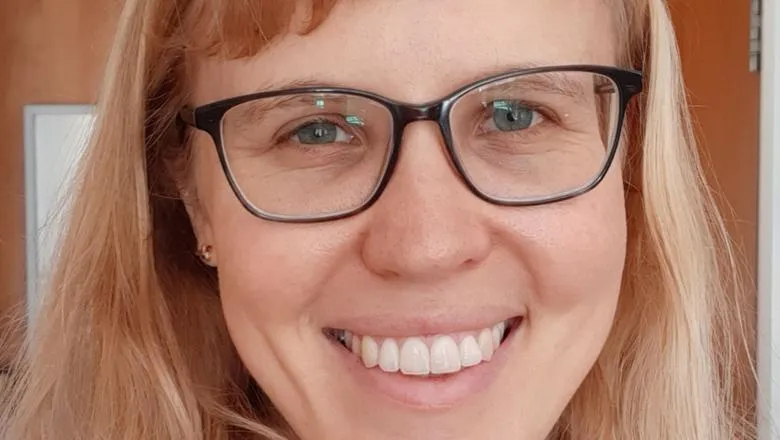09 October 2022
King's women in maths: Zoe Wyatt
Zoe Wyatt interview

Who are you and what is your area of research?
My name is Zoe Wyatt, and I work on the analysis of partial differential equations (PDEs) that arise in mathematical physics. We use solutions of PDEs to produce models that describe physical phenomena (say a galaxy cluster or a black hole). These models typically should be stable: that is, small changes to the model at some given time should only lead to small changes in the model’s behaviour at later times. Stability is key for a model to tell us something about physics and is crucial for ensuring reliable numerical simulations. My research involves determining whether stability holds for many interesting models derived from general relativity, string theory, particle physics and cosmology.
What do you think is holding women back from pursuing a career/degree in the maths field?
There are many complex reasons. For example, from a young age, outdated societal norms are imposed on girls, while at a career stage there is little flexibility for two-body problems (where a woman's partner is also seeking an academic job). Another issue is the lack of female academics in the field to look out for junior women. I had very few female lecturers as an undergraduate in Cambridge, while as a PhD student at the University of Edinburgh, I was the most senior female mathematician in both the Analysis and Mathematical Physics groups. I see many colleagues benefit from small informal networks, such as coming from the same country, and I would very much like to have this as a woman.
What is the most unexpectedly pleasant event that has happened to you since entering mathematics?
In 2014, after my master's degree and before my PhD, I spent a year working as a tutor at the African Institute for Mathematical Sciences (AIMS) in Cape Town. I had the most transformative year teaching mathematics to 60 inspiring and hard-working students from 19 African countries. In 2021 I went to AIMS Rwanda to lecture a course on PDEs. It has given me the greatest pleasure to follow and support the careers of my students from Cape Town and Rwanda.
What inspired you to take up mathematics?
I proved a small but new result in my master's thesis in Cambridge. I was particularly inspired when (at roughly 3am the day before the deadline) I realised there was a gap in the literature. Coming up with a problem, and then solving it, is very satisfying!
Tell us about a way maths affects everyday life in 2022
The GPS that you use on your phone, say through Google Maps, relies crucially on Einstein's theories of special and general relativity.
What advice would you give to someone considering studying maths?
I think the main benefit of studying Mathematics is the thinking skills and logical processes that are developed and strengthened. Partly as a result of this, studying Mathematics can lead to diverse careers, such as finance, academia, teaching, entrepreneurship, technology, and many more. I suspect that girls often prefer to study courses at university, such as law, that have defined and concrete career outcomes.
